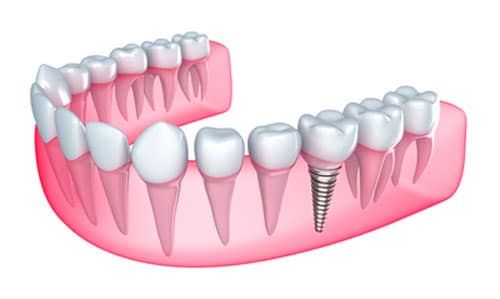How To Ensure Dental Implant Longevity

Dental implants are a popular and effective solution for replacing missing teeth, offering a durable and natural-looking alternative to traditional dentures or bridges. However, to maximize the longevity of your dental implants and ensure they function well for years to come, it’s essential to follow proper care and maintenance practices. Here are some key strategies to help you ensure your dental implants last as long as possible.
1. Maintain Excellent Oral Hygiene
Good oral hygiene is crucial for the success and longevity of dental implants. Brush your teeth at least twice a day with fluoride toothpaste, paying special attention to the area around the implants. Use a soft-bristled toothbrush to avoid damaging the implant and surrounding gum tissue. Floss every day to eliminate plaque and food particles that can gather around the implant.
Also, using an antimicrobial mouthwash can help lower bacterial levels in your mouth. Regular professional cleanings and check-ups with your dentist are also essential to monitor the health of your implants and surrounding tissues.
2. Avoid Hard and Sticky Foods
While dental implants are designed to be durable, they can still be affected by certain types of food. Avoid biting into hard objects, such as ice or hard candy, which can put excessive pressure on the implants and potentially cause damage. Sticky foods, like caramel or taffy, can also be problematic as they may adhere to the implant and be difficult to clean properly.
Opt for a balanced diet that includes soft and nutritious foods, which will help maintain both your overall oral health and the integrity of your implants.
3. Quit Smoking
Smoking is known to have a negative impact on oral health and can significantly affect the success of dental implants. Tobacco use reduces blood flow to the gums, impairing the healing process and increasing the risk of infection around the implant. Quitting smoking not only benefits your dental implants but also improves your overall oral and general health.
4. Manage Your Dental Health Conditions
If you have pre-existing dental health conditions, such as gum disease or bruxism (teeth grinding), it’s important to manage these conditions effectively. Gum disease can lead to implant failure if not treated, and bruxism can place excessive stress on implants. Work with your dentist to address and manage any underlying issues to protect your implants and maintain good oral health.
5. Wear a Night Guard if Necessary
If you suffer from bruxism or other habits that could put undue stress on your implants, consider wearing a night guard. A custom-fitted night guard can help protect your implants from the effects of teeth grinding and clenching, reducing the risk of damage.
6. Schedule Regular Dental Check-ups
Regular dental check-ups are vital for maintaining the health of your implants. Your dentist will monitor the condition of your implants, perform necessary cleanings, and address any potential issues before they become serious problems. Follow your dentist’s recommendations for check-up frequency and take advantage of these visits to discuss any concerns you may have about your implants.
7. Follow Your Dentist’s Instructions
After receiving dental implants, your dentist will provide specific post-operative care instructions. Follow these instructions carefully to ensure proper healing and integration of the implant with your jawbone. Adhering to your dentist’s advice will help prevent complications and support the long-term success of your implants.
Conclusion
Dental implants can provide a long-lasting solution for missing teeth when properly cared for. By maintaining excellent oral hygiene, avoiding harmful habits, managing dental health conditions, and following your dentist’s advice, you can help ensure the longevity and success of your dental implants. Regular check-ups and a proactive approach to oral health will keep your implants in top condition, allowing you to enjoy a healthy, functional smile for years to come.

